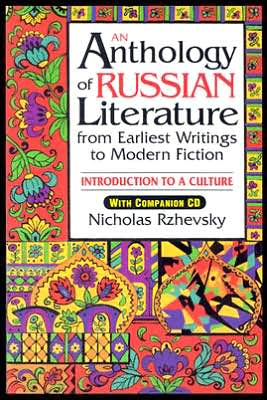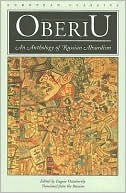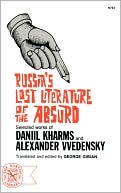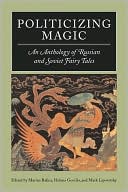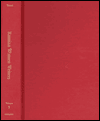Anthology of Russian Literature from Earliest Writings to Modern Fiction: Introduction to a Culture
Russia has a rich, huge, unwieldy cultural tradition. How to engage it? This pathbreaking classroom reader was designed to respond to that challenge. The literary works selected for inclusion in this anthology introduce the core cultural and historical themes of Russian civilization. Each text has resonance throughout the arts-in Rublev's icons, Meyerhold's theater, Mousorgsky's operas, Prokofiev's symphonies, Fokine's choreography, and Kandinsky's paintings. They are supported by...
Search in google:
Rzhevsky (European languages, literature, and culture, Stony Brook University) presents an anthology of tales, stories, poems, songs, and excerpts from novels and plays, which offers an introduction to Russian literature from the Igor Tale to twentieth-century works. The readings are divided into six sections: cultural beginnings, the emerging self, search for identity, subversions of secularization, new aesthetic language, and Soviet culture and beyond. Each group of readings is introduced in an illustrated essay evoking the times in which the authors lived, the themes that engaged them, and the representations of those same themes in other media—in Rublev's icons, Mousorgsky's operas, Meyerhold's theater, Prokifiev's symphonies, Fokine's choreography, or Kandinsky's paintings. An interactive, multimedia CD-ROM is included, which contains numerous examples of painting, sculpture, architecture, dance, music, and opera. An index is not provided. Annotation ©2004 Book News, Inc., Portland, OREurope-Asia StudiesA vividly fresh and individual yet broad introduction to the rich panoply of Russian culture.
I. Cultural Beginnings 1. The Tale of Igor 2. Anonymous, "Boris and Gleb" 3. "The Life of Alexis, Holy Man of God" II. The Emerging Self 4. Avvakum. The Life of Avvakum III. The Search for Identity 5. Gavrila Derzhavin, "Felicity" 6. "The Firebird and Princess Vasilisa" 7. Nikolai Karamzin, "Poor Liza"8. Alexander Pushkin, "The Bronze Horseman" 9. Mikhail Lermontov, "Borodino" 10. Mikhail Lermonotov, "Taman" IV. Subversions of Secularization 11. Alexander Pushkin, Boris Godunov 12. Alexander Pushkin, "The Queen of Spades" 13. Nikolai Gogol, "The Overcoat" 14. Ivan Turgenev, "Bezhin Meadow" 15. Fedor Dostoevsky, "The Meek One" 16. Nikolai Leskov, "Lefty" 17. Leo Tolstoy, "Holstomer" V. New Aesthetic Languages 18. Anton Chekhov, "The Lady with the Lapdog" 19. Anton Chekhov, The Cherry Orchard, Act One 20. Alexander Blok, "The Puppet Show" 21. Anna Akhmatova, "The Gray?Eyed King" 22. Vladimir Mayakovsky, "Listen!" 23. Marina Tsvetaeva, "I ask the mirror for a glimpse..." 24. Marina Tsvetaeva, "Verses about Moscow" 25. Valery Briusov, "Barely a Tenth" 26. Andrei Bely, from Petersburg: "The Escape" VI. Thresholds: Soviet Culture and Beyond 27. Isaak Babel, "The King" 28. Sergei Esenin, "Farewell, my friend, farewell" 29. Ilf and Petrov, from Twelve Chairs: "The Sword and the Plow" 30. Mikhail Sholokhov, Virgin Soil Upturned, Ch. 7, Bk. 1 31. Mikhail Zoshchenko, "Crime and Punishment" 32. Osip Mandelstam, "We live without feeling..." 33. Anna Akhmatova, "The Last Toast" 34. Daniil Kharms, "Makarov and Peterson" 35. Chapayev Anecdotes 36. Mikhail Bulgakov, from The Master and Margarita: "Black Magic and Its Exposure" 37. Boris Pasternak, "Hamlet" 38. Vladimir Vysotsky, "Morning Exercise" 39. Fedor Abramov, "Wooden Horses"
\ Europe-Asia StudiesA vividly fresh and individual yet broad introduction to the rich panoply of Russian culture.\ \ \ \ \ BooknewsArrangement of the selections is chronological, except for the early 19th century, when the progression is interrupted in order to arrange texts by topic. The introduction to each section places the literary works in their historical context and notes later cultural resonances. Following each text is an introductory guide to primary and secondary sources, including available aesthetic transformations of the work, its subjects, and its motifs in film, video, musical recordings, and art collections. These listings emphasize Russian rather than non- Russian responses in the arts (e.g. Sergei Bondarchuk's film adaptation of War and Peace rather than the American version). Rzhevsky is in the Russian department at SUNY, Stony Brook. Paper edition (unseen), $29.95. Annotation c. Book News, Inc., Portland, OR (booknews.com)\ \
